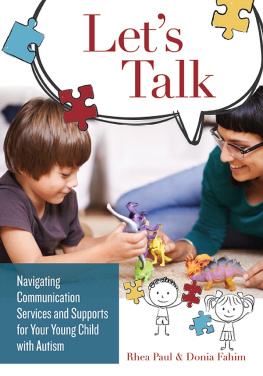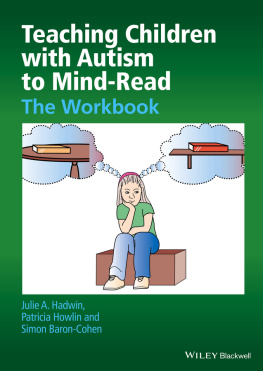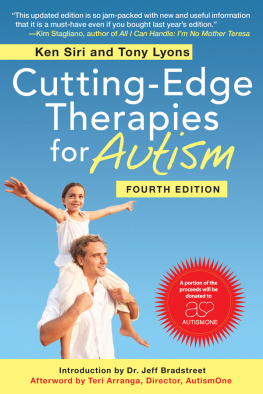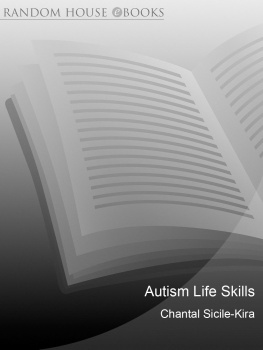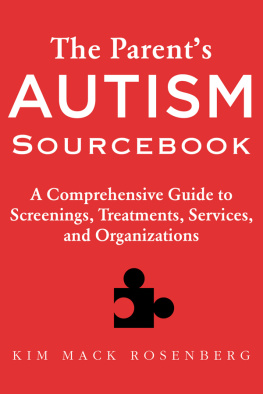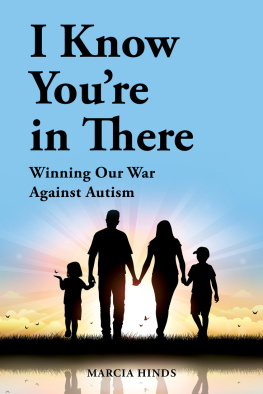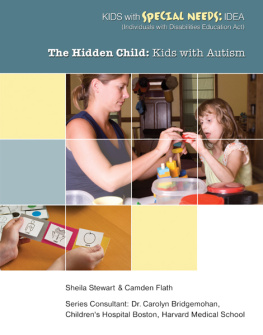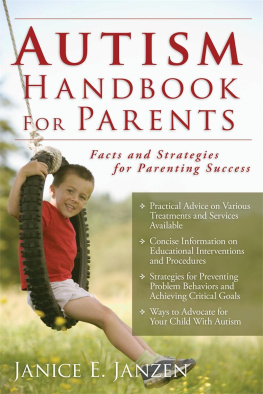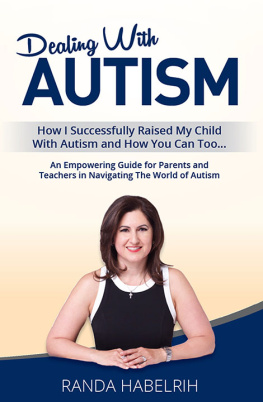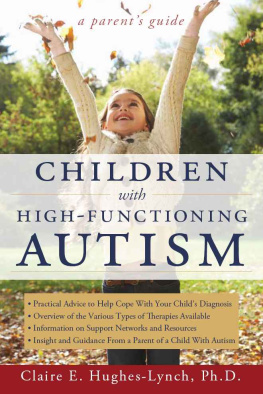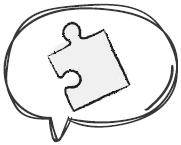Contents
Guide
Lets Talk
Lets Talk
Navigating Communication Services and Supports for Your Young Child with Autism
by
Rhea Paul, Ph.D., CCC-SLP
Sacred Heart University
Fairfield, Connecticut
and
Donia Fahim, Ph.D.
New York University
New York, New York
 | Baltimore London Sydney |

Paul H. Brookes Publishing Co.
Post Office Box 10624
Baltimore, Maryland 21285-0624
www.brookespublishing.com
Copyright 2016 by Paul H. Brookes Publishing Co., Inc.
All rights reserved.
Paul H. Brookes Publishing Co. is a registered trademark of Paul H. Brookes Publishing Co., Inc.
All illustrations by Maiko Suzuki.
Clip art is istockphoto.com.
Cover image is istockphoto/PeopleImages.
All examples in this book are composites. Any similarity to actual individuals or circumstances is coincidental, and no implications should be inferred.
Library of Congress Cataloging-in-Publication Data
The Library of Congress has cataloged the printed edition as follows:
Paul, Rhea, author.
Lets talk: navigating communication services and supports for your young child with autism / Rhea Paul, Ph.D., CCC-SLP, Sacred Heart University, Fairfield, Connecticut, and Donia Fahim, Ph.D., New York University, New York, NY.
pagescm
Includes bibliographical references and index.
ISBN 978-1-59857-120-2 (paperback) ISBN 978-1-68125-036-6 (epub) ISBN 978-1-68125-035-9 (pdf e-book) ISBN 978-1-68125-033-5 (Kindle)
1. Autism in children.2. Autistic childrenCare.3. Autistic childrenFamily relationships.I. Fahim, Donia, author.II. Title.
| RJ506.A9P38 2016 |
| 618.9285882dc23 | 2015018504 |
British Library Cataloguing in Publication data are available from the British Library.
Version 1.0
About the Authors
Rhea Paul, Ph.D., CCC-SLP, is Professor and Founding Director of the Speech-Language Pathology graduate program at Sacred Heart University in Fairfield, Connecticut; an affiliate at Haskins Laboratories; and Professor Emerita at Southern Connecticut State University. She received her bachelors degree from Brandeis University in Waltham, Massachusetts; her masters degree in reading and learning disabilities from the Harvard Graduate School of Education in Cambridge, Massachusetts; and her doctoral degree in Communication Disorders from the University of Wisconsin-Madison. She has been a principal investigator on research projects on language disorders and autism funded by the National Institute on Deafness and Other Communication Disorders, the National Institute of Child Health and Human Development, Autism Speaks, the Meyer Memorial Trust, the Oregon Medical Foundation, and at the Yale Autism Center of Excellence.
Dr. Paul is the author of more than 90 refereed journal articles, 40 book chapters, and eight books. She received the Editors Award from the American Journal of Speech-Language Pathology in 1996 and was awarded the inaugural Ritvo/Slifka Award for Innovative Clinical Research by the International Society for Autism Research in 2010. Dr. Paul has been a Fellow of the American Speech-Language Hearing-Association since 1991 and received the Honors of the Association in 2014.
Donia Fahim, Ph.D., is Senior Consultant for the ASD Nest Project at Steinhardt School of Culture, Education, and Human Development at New York University and Assistant Professor at Hunter College in New York City, where she was Program Coordinator for the Early Childhood Special Education Program from 2008 to 2013. She is also Cofounder and Executive Director of Autism Friendly Spaces and developer of the first dual language ASD Next public school program in New York City. She obtained her bachelors, masters, and doctoral degrees from the University of London, England. She is a certified member of the Royal College of Speech and Language Therapists.
For the last 20 years, Dr. Fahim has worked as an international consultant in speech-language pathology. She served as Clinical Director and Founding Member of The Egyptian Society for Developing Skills of Special Needs Children from 1998 to 2007, focusing on work with individuals with autism spectrum disorder (ASD) and early intervention. She developed organization-specific educational curriculum, clinical procedures, and guidelines for special education for young children with special needs (e.g., Egypt: Advance Society, Learning Resource Center, Nida Center, Caritas; Saudi Arabia: Saudi Autistic Society; Nigeria: Patrick Center; Jordan: Early Years Center, Monetessori School of Amman). As a Global Master Trainer for the United Nations Childrens Fund (UNICEF) in Early Childhood Development in Emergency, she has provided and consulted on speech-language pathology services throughout the world, most often in the Middle East and Africa.
Dr. Fahim has appeared on national and international radio and television in the United States, Africa, and Asia. She has been an invited speaker at many leading international conferences and events hosted by both governmental and nongovernmental organizations, such as the National Council for Motherhood and Childhood in Egypt; the United Nations Educational, Scientific and Cultural Organization Education for All (UNESCO EFA) conferences (Beirut); the Annual Autism Conference in Egypt; the World Autism Congress and Exhibition in South Africa; the Stockholm Annual Autism Conference; and the Saudi Autism awareness campaign. She was a keynote speaker at the 20I4 Saudi International Occupational Therapy Conference and also received awards from the Saudi ministry of health for her contribution to parent training for families of children with ASD.
Prologue
If youre reading this book, chances are its because youve found out that someone in your family has autism spectrum disorder (ASD) and you are feeling the need to learn as much as you can as quickly as you can about this condition and how to handle it. Our aim is to try to give you the information you need in a straightforward way. Weve tried to describe ASD, define the various terms clinicians use, show how ASD affects a childs development and learning, relay what we know about treating its symptoms, and provide guidance on how to talk to the professionals you will meet as you construct the best program for your child. Weve also tried to talk about how it feels to families, because the needs of other family members sometimes get overshadowed with all of the attention on the child who has been diagnosed with ASD.
The best advice we can give families just starting this journey is to take a breath! We know it feels as if you have to do everything now perfectly or your childs chances for success will be diminished. Youre probably worrying that if you lose a day or a week of programming, then youll limit your childs chances for success. Yet, this is not a sprint; its a marathon. Pace yourself. Do what you can, but dont worry about what you cant do. Yes, early intervention is certainly important, but if it starts in a month instead of this week, your child will still derive significant benefit. The most important thing for your child with ASD is exactly the same thing thats most important for any other childto have strong and loving parents with the mental and physical health to provide a safe and stable home. So, taking care of your own physical and mental health is just as important as what you put in place for your child. In the course of this book, well provide information to help you organize the programming your child will need to develop and learn. You have timeit really doesnt all have to happen today. In the meantime, you should think just as hard about what to do for yourself, your partner, and your other children to make sure everyone can blossom in the environment you create for your child with ASD. We sincerely hope that this book will play some small part in helping you to fashion a place where your child and your family can thrive.

